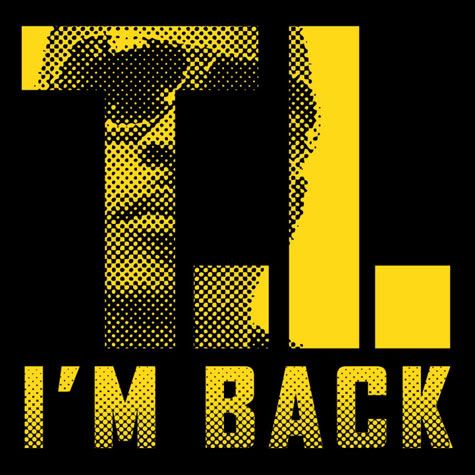Eminem - Recovery (Album Review)
How do you make a second comeback after a failed first comeback? The answer to this question was clear to Eminem: experiment. One of the largest complaints against last year's aforementioned failure Relapse was that the whole thing sounded completely generic and was essentially a retread of the artist's earlier work. While that was great for diehard fans, for the public at large it just wasn't enough.
Now Mathers is back with a true comeback album accompanied by a clear vision and a clear mind. So how does Recovery stack up? Read on to find out.
As odd as this may seem, I think one of the works this album has most in common with is actually 808s & Heartbreak, Kanye West's polarizing last album. Sure, West didn't need a comeback and Eminem definitely does not use Auto-Tune on this record, but the way the two came into existence are similar: 808s was born out of depression and features West experimenting with a classic sound, Recovery was born out of hope and features Eminem experimenting with his classic sound.
Recovery kicks off with "Cold Wind Blows" that is pretty much a perfect start: the song features a familiar beat but throws in a lot of new things that can catch a seasoned fan off guard, like Em singing at the start and a ferocious (albeit aimless) rap. The song is a great reminder of exactly what Recovery symbolizes for the veteran rapper: to bridge the gap between his past and the present to create something completely new.
And when that happens, there is a good chance you'll hear some pretty fantastic songs. "Talkin 2 Myself" is a prime example of reaching this new goal by featuring a stellar, gritty beat and extremely memorable lyrics as B-Rabbit breaks down his recent, unspoken of issues such as planning to attack other rappers out of jealousy (he names both West and Lil Wayne) as well as his self-destructive behavior in light of his best friend Proof's death. But the song ascends as things become more hopeful and Eminem further cements the fact that this album is his true comeback. Mathers commonly uses this kind of introspection on the album, most notably in the excellent song "Going Through Changes" where the rapper admits to himself he is not entirely sure of where he is in his life but he will choose to make the most of it.
Recovery stands out in another, notably different way too: unorthodox collaborations. The album features Kobe, Rihanna, Pink, and Lil Wayne and luckily all of them contribute to the most memorable songs on the album. The Pink collab, "Won't Back Down" is the best song on the album, thanks to DJ Khalil's great claustrophobic rock beat, Eminem's most brutal rapping of the entire album, and Pink's fantastic job on the hook. Kobe was on the aforementioned "Talkin 2 Myself" and did a terrific job characterizing the 'cry for help' concept of the song. "Love The Way You Lie" features Rihanna and is the most radio-friendly song due to her addictive singing on the chorus and a monstrous beat (similar in structure to B.o.B's "Airplanes"). Finally there is the absolutely killer Lil' Wayne collab, "No Love" which is guaranteed to become the fan favorite from Recovery. Lil Wayne finally manages to kick out a near-flawless verse after going south in recent months and is the first time I've actually missed the eccentric rapper. Then there's the innovative beat from Just Blaze which samples the Haddaway song "What Is Love" (made famous by SNL's numerous parodies) to provide a fun and refreshing concept for Eminem to completely slay.
While the majority of Recovery is great, as with many emotionally-driven wildcard albums there are some duds. Probably the worst of the bunch is "Space Bound" with its stupid, screeching, ear-obliterating chorus. Seriously, it is that terrible and I have no idea how this ended up on the album but luckily it wasn't a complete disaster thanks to Eminem keeping up some good consistency. "On Fire" is yet another disappointment just because it is exactly the same kind of generic song from Relapse that should have been avoided. Then there's the just plain odd "Seduction" which, aside from a great R&B-styled sample, sounded disorganized and lazy. Finally, "You're Never Over" is the 'last' song (there is a hidden track later) but, despite a decent beat and good lyrics, features cringe-worthy singing from the rapper and is just a weak way to end the album.
Besides that song and the single "Not Afraid", Eminem singing is actually not as dire as critics were making it out to be, mostly because he just goes along with the beat by including some bridges. Another note on Recovery is that it is a long album, clocking in at 1 hour and 17 minutes, and this inflated runtime resulted in a lot of filler songs. Yet one major compliment I can give to the album is that, despite the filler, Eminem's lyrics and rapping were very consistent and I can easily say this is his best lyrical work since 2002's The Eminem Show.
Recovery may not be a perfect album, but once we look back upon it from the future, it should stand as a pivotal moment in Eminem's career. The success and reception of this album will make or break the rapper's career and will also determine if Eminem can finally ascend the ranks to become one of the all-time 'greats' of the genre. Recovery is an emotional rollercoaster of engaging lyrics, creative beats, and fresh style. Making this kind of an album at this point in his career can only be a good sign of things to come from the veteran rapper.














0 comments:
Post a Comment
Whether you have enjoyed what you've read or want to rant about how I'm a complete moron, express yourself in the comments section!